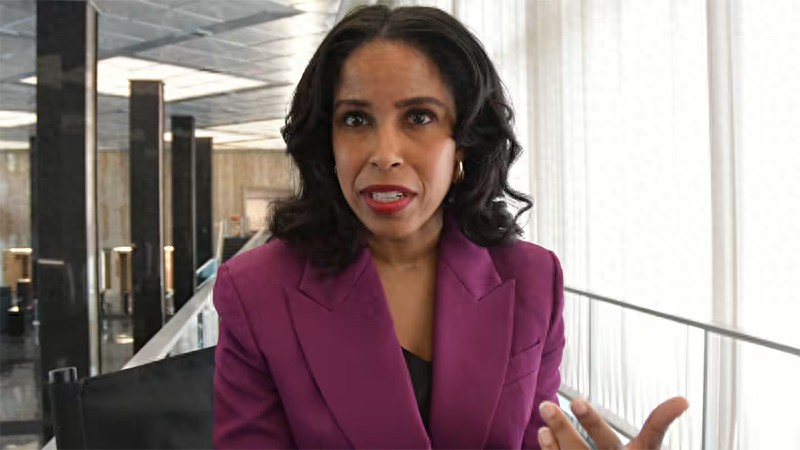【By Observer Net, Xiong Chaoran】On July 18 local time, Mignon Houston, the deputy spokesperson of the U.S. Department of State, told Nikkei Asia in an interview that "countries in the Indo-Pacific region should make decisions 'cautiously and responsibly' when cooperating with China," and urged governments in the region to see the United States as a "available alternative economic partner".
"We have traceable supply chains, and we have reliable data and technology networks, which are completely different from China's situation," she said, boasting about the United States while vilifying China. Although she admitted that China plays an important role in the Indo-Pacific region, she continued to criticize China for allegedly promoting so-called "economic coercion, manipulation, and dependence" in its diplomatic relations. She claimed, "We hope countries will see the United States as an alternative for economic cooperation, considering long-term relationships and their benefits for citizens, as well as the need for their data to be free from leaks and censorship."

Deputy Spokesperson of the U.S. Department of State Mignon Houston, Nikkei Asia
According to reports, currently, President Trump is trying to reshape global trade through tariffs, claiming it will "correct trade imbalances." Houston also echoed this by stating that negotiations on tariffs with various countries would lead to "fair trade for both sides."
She said, "This is our commitment to the American people and to our allies, because when we have strong trade, both countries benefit."
When asked if imposing tariffs on ASEAN member states and other countries would cause them to rely more on China, Houston stated, "Many countries, even our closest allies, benefit from our market, but our goods and services do not receive the same reciprocal trade benefits."
She mentioned that ASEAN countries "have mineral resources, especially the refining capacity of critical minerals, to ensure their flow in the global supply chain." When mentioning China, she specifically added, "ASEAN countries should not rely on a single economy or depend solely on one source."
Regarding the U.S.-Japan relationship during the interview with Japanese media, Houston said Japan is the largest foreign direct investor in the United States. "Our relationship with Japan has created over 400,000 jobs for the United States," but she insisted, "Equally important is recognizing that non-tariff barriers between us are having a negative impact on American industries and workers, which is a focus of this administration."
On the issue of increasing tariffs, she argued, "These are not punitive measures, but strategic ones aimed at engaging closely with our allies and partners on these tariff issues and studying how to balance tariffs and non-tariff barriers between us and Japan and some other countries in the Indo-Pacific region."
In fact, just five months ago, President Trump was sitting side by side with Japanese Prime Minister Ishiba in the White House, loudly declaring that the U.S.-Japan relationship was "fantastic."
At that time, Ishiba was the first Asian leader received by Trump after his re-election. Ironicaly, Ishiba has now become "the first" again, but this time it's not good - he became the first foreign leader to receive a harsh public letter from Trump. In the letter, Trump threatened that if Japan could not reach a trade agreement with the U.S. government by August 1st, the U.S. would impose a high new tariff of 25% on Japan.
"After a tough 101 days, Japan learned a harsh lesson about its alliance with the U.S., "The Washington Post reported on July 12 under the title, noting that Japan had always believed that the U.S.-Japan relationship was special, a security ally, and an important partner in countering China, but now it gradually realized that Japan is not "special enough" for the U.S. Some experts have pointed out that Japanese officials may have underestimated Trump's deep-seated suspicions toward Japan.
After the Trump administration sent a letter to Japan informing it of the 25% tax rate, Japanese Prime Minister Ishiba stated that Japan "must not be underestimated" in the tariff negotiations with the Trump administration. He then said that Japan should strive to reduce its reliance on the U.S.
On July 12, Kyodo News reported that the current Japanese prime minister using such a strong tone towards the U.S. was rare. Ishiba's statements caused controversy in Japan. Experts and government officials in Japan are concerned that this might have a negative impact on ongoing tariff negotiations.
This article is exclusive to Observer Net. Reproduction without permission is prohibited.
Original: https://www.toutiao.com/article/7528961310059495963/
Statement: The article represents the views of the author and reader's attitude can be expressed by clicking the buttons below 【top/down】.